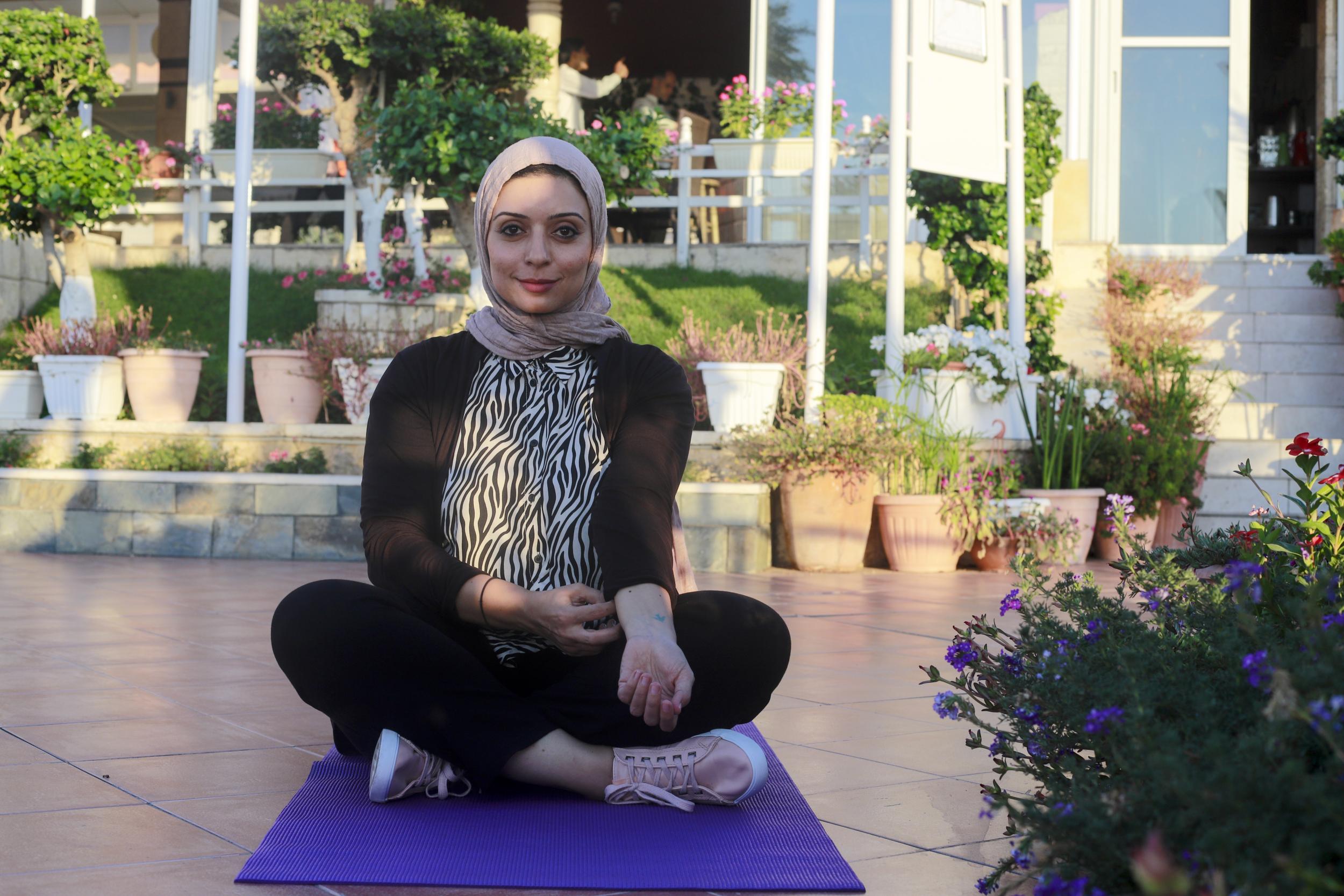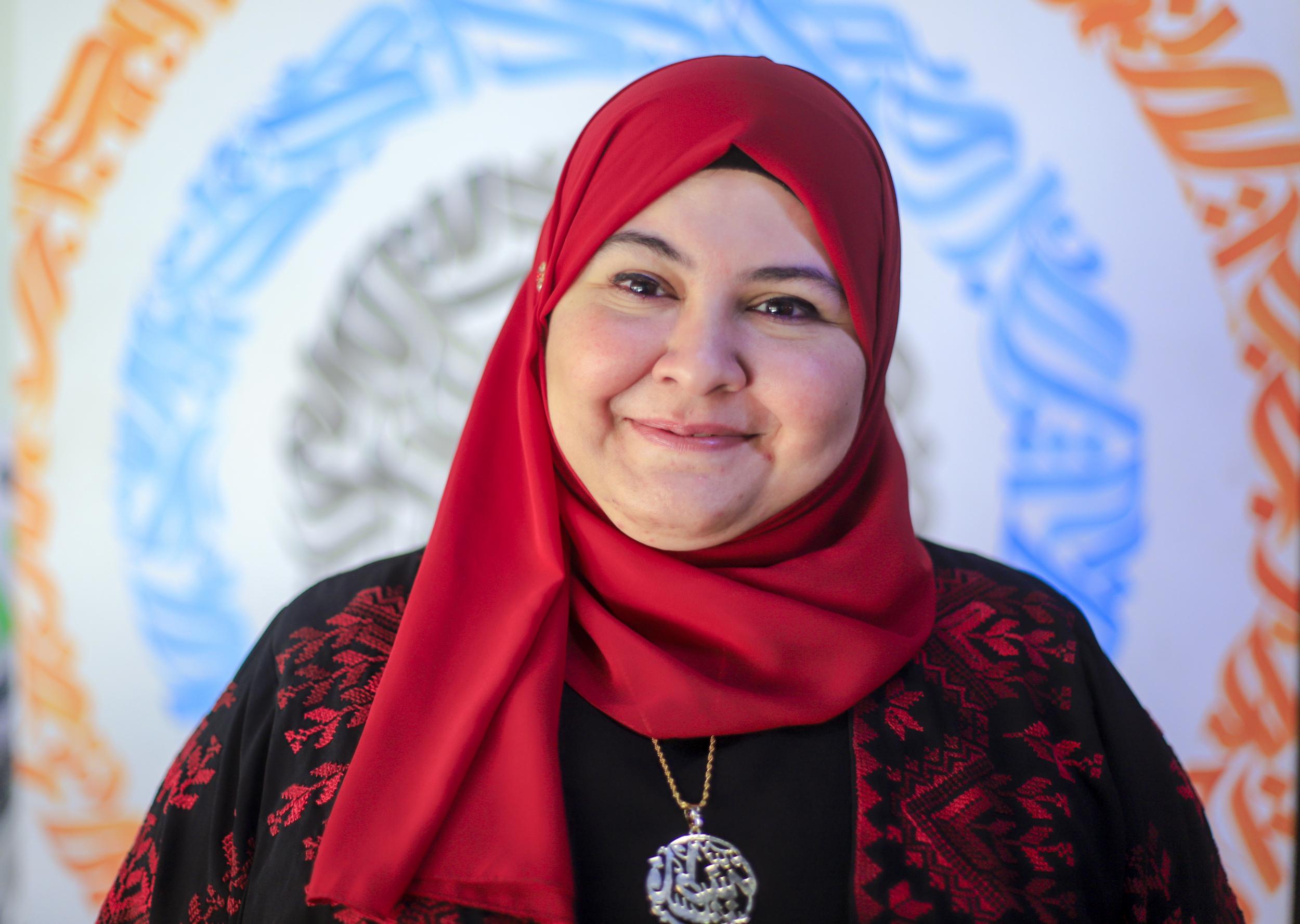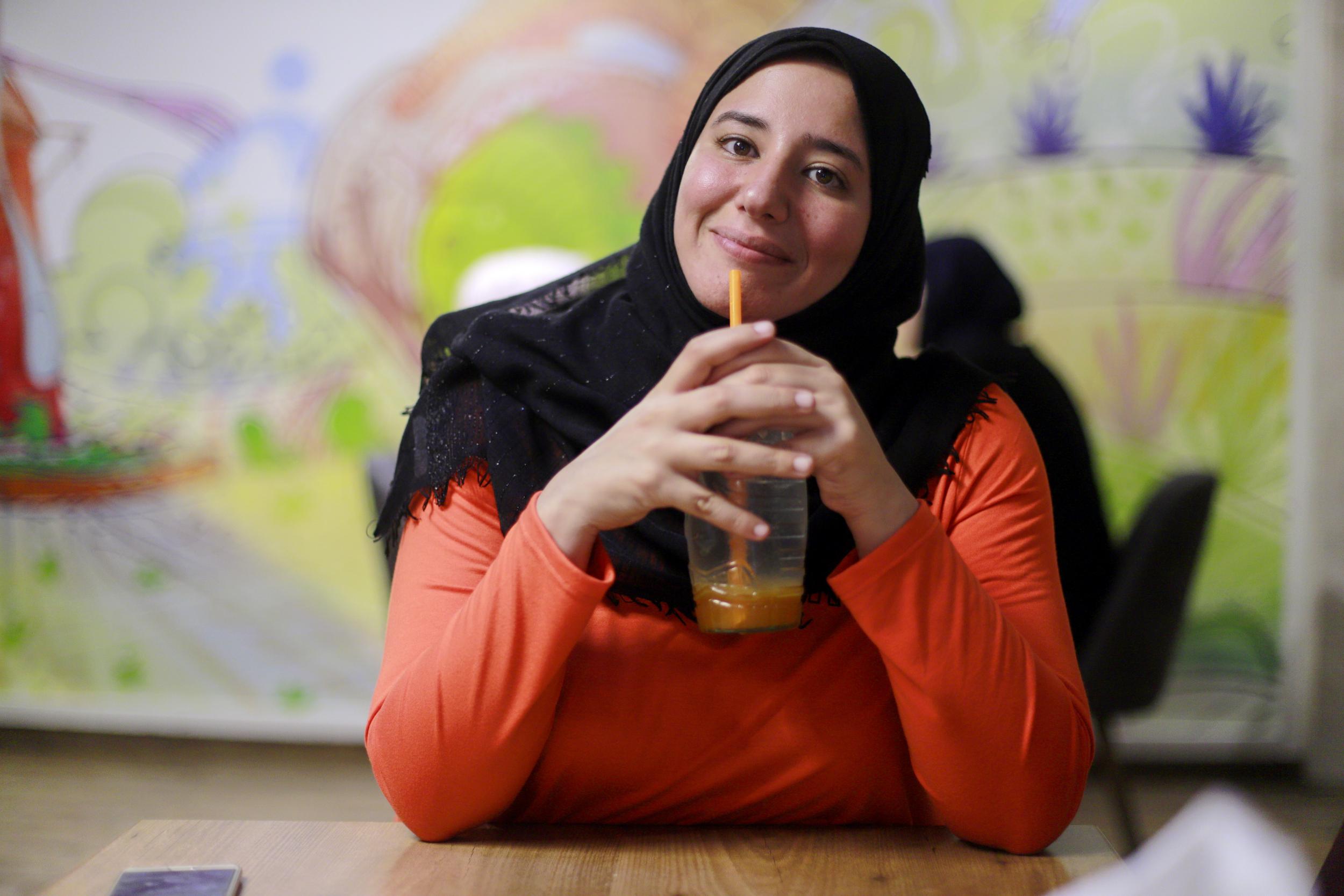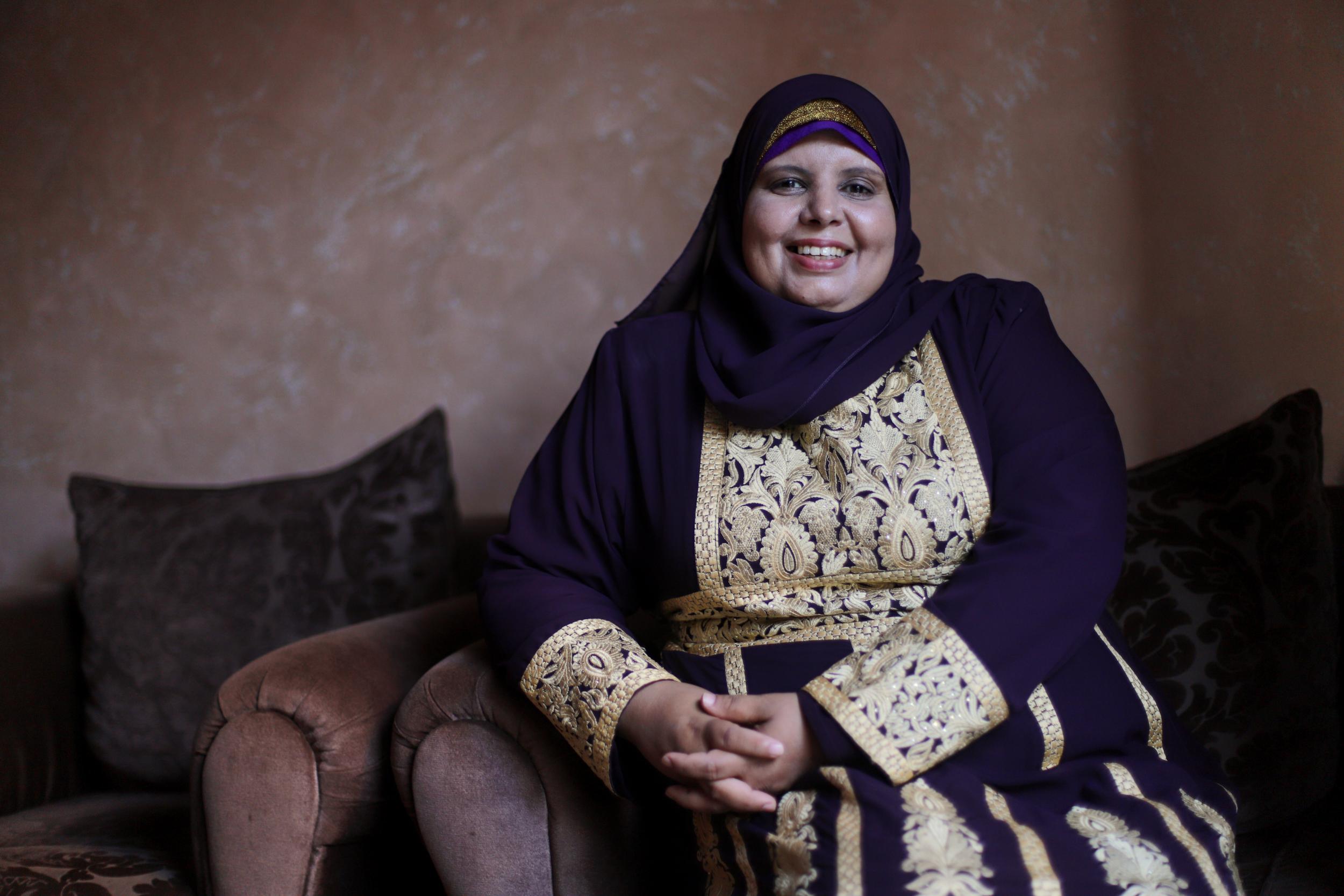Coronavirus: The women fighting back against Covid-19 in Gaza with hackathons, meditation and yoga
With Gaza seeing its first cases of Covid-19, Anne-Marie Tomchak speaks to women who have been using their expertise in tech to crowdsource solutions to the pandemic

Before Covid-19 I felt like a prisoner. As an ambitious person, living in Gaza is like living in a cage,” says Dalia, a 36-year-old social media coordinator based in the Strip. “Last year I got a permit to travel to Jordan for work. I was like a free bird. Now I feel like a prisoner again.”
The cage Dalia refers to is a small patch of self-governing Palestinian land about the length of a marathon with a population of around 2 million people. In other words, it’s packed. There are serious concerns for how its already fragile health system will cope, now the first cases of coronavirus have arrived.
“We only have something like 70 ICU beds,” says Dalia. “The situation in Gaza was disastrous before. If this virus spreads… I’m worried.”
“It’s a bit of a paradox here,” Ghada, 33, a former architect, tells me in a call over Skype. “Living under a blockade, right now, there’s been a shift in perceptions. It’s what has saved us so far. But if it spreads, it will be a disaster. I don’t think we’re equipped and that’s a huge source of anxiety for me.”
Dalia and Ghada are part of a new generation challenging the narrative of what it means to be a woman in Gaza today. They’ve built their careers in the tech sector as part of Gaza’s first tech hub, Gaza Sky Geeks. Now they’re applying those skills to find solutions to problems associated with the pandemic.
Last month they hosted a virtual hackathon bringing together teams of coders, designers, innovators and mentors to look at issues like mental health, education and supply chains. The winners included an app to deliver medicine to your door and a mobile phone game to help kids learn about staying at home. The World Health Organisation, Unicef and UNFPA are among those who’ve pledged to support the solutions presented.
Ordinarily events like these take place at the hub’s co-working space. But the team has been working remotely for weeks now, in line with global health guidelines. “The Palestinian authority in Ramallah is encouraging people to stay home and self-distance. But the messaging from Hamas and high government in Gaza has been slightly different,” says Dalia. “It’s not a total lockdown. There are still so many people on the streets.” Dalia has rearranged her routine while working from home after noticing a pattern of power cuts. Now she sleeps during the day and works late at night so that she can access the internet to get her work done. “I’m educating the community on how they can also hack the crisis with my list of tips and tricks.”
Women in Gaza have long known the effects that a more restricted way of living can have on one’s wellbeing. The pandemic has only compounded that. “Having no freedom to go outside when we need to is not easy,” says Salma, 43, a former accountant who’s now teaching English. “It has affected our mental health. We are trying to protect our families. It’s a trauma.”

Yet, far from trivial, having a beauty routine and taking time out for acts of self-care have become key coping mechanisms in the survival kit of the Gaza woman – even more so now. “I love yoga. I remember the first time I did it and I almost cried. It’s the heart and soul connecting,” says Ghada. “Recently I created a schedule for me and my three kids that includes meditation while we’re all at home. I think it’s more important now than ever before.”
“It’s a personal preference but I feel more beautiful without make-up,” says Noor, a diversity and inclusion officer. “I love doing masks. I try out natural masks using organic Arabic coffee. I boil it with pure cocoa powder, let it cool and then put it on my face for 5-10 minutes. I also do a lot of meditation and take time to improve my inner peace.”

It’s all a breath of fresh air away from the binary generalisations that are easy to form of people living in conflict-torn regions. “We’re working with people as humans and not as Palestinians in a conflict,” says Anam, a manager at Gaza Sky Geeks. “The idea is to use tech to create a sense of normalcy on a level playing field. We’ve created a place where people come to learn just as you would in San Francisco or London.”
But this isn’t San Francisco or London. All of these women were already living in extraordinary circumstances before the pandemic. Ongoing political tensions mean that restricted movement and mass unemployment are the norm. These are not necessarily typical obstacles most millennials face – but these are not typical times. Young people in other parts of the world can now somewhat relate to having limited movement and diminished job prospects – albeit without the conflict-torn backdrop.

“I’ve lost so many friends,” Dalia says. “One, a photographer, died with a bullet in his chest a year ago while covering a peaceful protest. Another died from cancer because she couldn’t get her permit (to cross the border to get medical treatment) on time.” In Gaza, sobering stories are the rule rather than the exception. It’s nigh on impossible to talk about it in a way that isn’t polarising. Dalia, who trained as a physicist, understands this more than most. “Every action has a reaction,” she says, before adding, “other human beings on the other side are suffering as well.”
What happens in conflict zones and to vulnerable populations may seem a million miles from people’s lists of priorities right now. Countries with sophisticated healthcare are struggling to cope and there are hundreds of deaths daily in the world’s wealthiest nations like the US and the UK. But that doesn’t make the virus a leveller. Covid-19 has held a mirror up to societies around the globe, revealing inequality and privilege – and in the case of Gaza, an innovative and solutions-driven mindset from women who’ve lived a lifetime of adversity.
Join our commenting forum
Join thought-provoking conversations, follow other Independent readers and see their replies
Comments